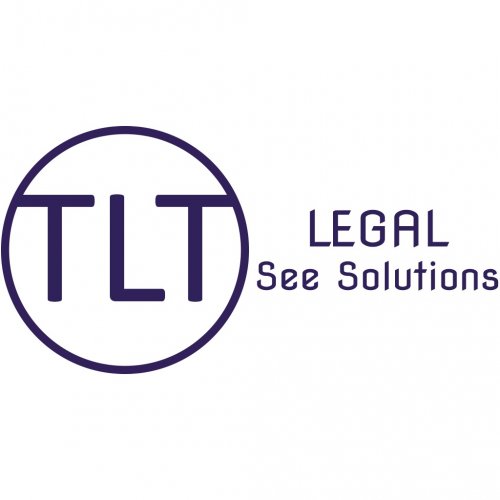Best Insurance Defense Lawyers in Vietnam
Share your needs with us, get contacted by law firms.
Free. Takes 2 min.
Or refine your search by selecting a city:
List of the best lawyers in Vietnam
About Insurance Defense Law in Vietnam
Insurance Defense in Vietnam refers to legal representation and advice provided to insurance companies and insured parties in disputes related to insurance claims. This area of law focuses on defending against claims made by policyholders or third parties, and often involves interpreting the terms of insurance contracts, assessing liability, and negotiating settlements. Insurance companies must navigate Vietnam's legal framework to effectively manage and mitigate risks.
Why You May Need a Lawyer
Individuals and companies may require legal assistance in insurance defense for various reasons:
- Denial of Claims: When an insurance company denies a claim, policyholders might need a lawyer to challenge the decision and argue on their behalf.
- Policy Disputes: Disagreements about the interpretation or application of policy terms can require legal expertise to reach a satisfactory resolution.
- Litigation: Litigation can arise from disputes over claim settlements, necessitating skilled legal representation to defend one's interests in court.
- Settlement Negotiations: Lawyers can help negotiate settlements to ensure fair compensation or defend against excessive claims.
- Regulatory Compliance: Legal counsel ensures compliance with Vietnam's complex insurance regulations and statutory requirements, avoiding legal pitfalls.
Local Laws Overview
Insurance defense in Vietnam operates under the Civil Code, the Law on Insurance Business, and the Commercial Law. The Law on Insurance Business outlines the legal framework governing the conduct of insurance businesses, including:
- Policy Issuance and Management: Regulations on creating and managing insurance policies, including consumer rights and obligations.
- Dispute Resolution: Legal procedures for handling disputes, either through court proceedings or alternative dispute resolution methods such as arbitration.
- Contracts: Insurance contracts must comply with the general principles of contract law, as specified in the Civil Code.
- Consumer Protection: Legal provisions that protect policyholders and ensure fair treatment in the insurance market.
Frequently Asked Questions
1. What is the role of an insurance defense lawyer in Vietnam?
An insurance defense lawyer represents insurance companies or policyholders in legal disputes involving insurance claims, providing guidance, negotiation, and representation in court.
2. How can I challenge a denied insurance claim?
If your claim is denied, you can challenge the denial by providing additional documentation, engaging in mediation, or seeking legal representation to pursue the matter in court.
3. What should I consider when selecting an insurance defense lawyer?
Look for experience in insurance law, a strong track record in litigation, and a clear understanding of Vietnam's legal environment and insurance regulations.
4. Are there specific regulations for auto insurance disputes in Vietnam?
Yes, auto insurance disputes are subject to the same general principles and regulations governing all insurance contracts, with additional provisions under the Road Traffic Law.
5. How long does it take to resolve an insurance dispute in Vietnam?
The duration can vary widely depending on the complexity of the case, the efficiency of the legal process, and whether the matter is resolved through arbitration or requires litigation in court.
6. Can an insurance defense lawyer help with regulatory compliance?
Yes, they can ensure that insurance companies adhere to relevant laws and regulations, reducing the risk of non-compliance penalties.
7. What are some common defenses used in insurance disputes?
Common defenses include questioning the validity of the claim, demonstrating lack of coverage, proving fraud or misrepresentation, and policy exclusions.
8. What does an arbitration process involve for insurance disputes?
Arbitration is an alternative dispute resolution method where an independent arbiter reviews the dispute and makes a binding decision, potentially saving time and legal costs.
9. How can businesses ensure their policies are compliant with Vietnamese laws?
Consulting legal experts in insurance law for regular compliance checks and updates on regulatory changes can help businesses maintain compliance.
10. What if I disagree with an arbitration outcome?
Arbitration outcomes are typically binding with limited scope for appeal, though parties can seek judicial intervention in cases of procedural errors or bias.
Additional Resources
For additional assistance and resources related to insurance defense in Vietnam, consider reaching out to the following:
- Ministry of Finance: The regulatory body overseeing insurance activities in Vietnam.
- Vietnam Insurance Association: Provides support and advocacy for the insurance industry in Vietnam.
- Legal Aid Center: Offers free or low-cost legal services to individuals seeking insurance-related advice and representation.
Next Steps
If you need legal assistance in insurance defense, consider taking the following steps:
- Consultation: Reach out to a lawyer specializing in insurance defense for an initial consultation to assess your situation and discuss potential strategies.
- Documentation: Gather all relevant documents, including insurance policies, communications with the insurer, and any other evidence related to the dispute.
- Legal Strategy: Work with your lawyer to develop a comprehensive legal strategy, whether through negotiation, arbitration, or court proceedings.
- Follow-Up: Maintain regular communication with your legal representative to stay informed and engaged throughout the process.
- Compliance: Ensure ongoing compliance with relevant insurance regulations to minimize future risks.
Lawzana helps you find the best lawyers and law firms in Vietnam through a curated and pre-screened list of qualified legal professionals. Our platform offers rankings and detailed profiles of attorneys and law firms, allowing you to compare based on practice areas, including Insurance Defense, experience, and client feedback.
Each profile includes a description of the firm's areas of practice, client reviews, team members and partners, year of establishment, spoken languages, office locations, contact information, social media presence, and any published articles or resources. Most firms on our platform speak English and are experienced in both local and international legal matters.
Get a quote from top-rated law firms in Vietnam — quickly, securely, and without unnecessary hassle.
Disclaimer:
The information provided on this page is for general informational purposes only and does not constitute legal advice. While we strive to ensure the accuracy and relevance of the content, legal information may change over time, and interpretations of the law can vary. You should always consult with a qualified legal professional for advice specific to your situation.
We disclaim all liability for actions taken or not taken based on the content of this page. If you believe any information is incorrect or outdated, please contact us, and we will review and update it where appropriate.
Browse insurance defense law firms by city in Vietnam
Refine your search by selecting a city.













